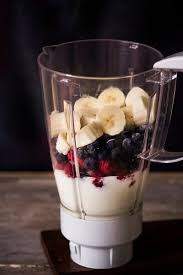If you love kicking off your day with fruity banana berry smoothies, you might want to hit the pause button on that combo. A new study published in Food & Function suggests that mixing bananas with berries could reduce your smoothie’s nutritional punch.
Bananas are a smoothie staple for good reason: they’re naturally sweet, rich in potassium and fiber, and add that thick, creamy texture we all love. But it turns out that this beloved fruit might not always play well with others, especially when it comes to berries.
In this article, News Round The Clock will reveal some of the results of the study.
ALSO READ
The Science Behind the Smoothie Sabotage
The culprit here is an enzyme called polyphenol oxidase (PPO), which bananas contain in high amounts. It’s the same enzyme responsible for making bananas turn brown after being cut. According to the study, when you blend bananas with berries—fruits rich in beneficial compounds known as flavanols—that enzyme starts to break down before your body even gets a chance to absorb them.
That’s a big deal, because flavanols aren’t just any old plant compound, they’re powerful antioxidants mostly found in fruits like blueberries, strawberries, blackberries, mangoes, and even cocoa. They’ve been linked to have a wide range of health benefits, from better heart health to improved brain function and even a stronger immune system.
“Research over the past 20 years has shown flavanols can help maintain health as we age,” says Dr. Javier Ottaviani, the study’s lead author and director of the Food & Nutrition Core Laboratory at Mars Edge. One large clinical trial found that consuming 500 mg of flavanols daily reduce the risk of cardiovascular deaths by 27%.
What the Study Found
To test the smoothie theory, researchers at the University of California, Davis, teamed up with the University of Reading in the UK. They asked eight healthy men to follow a low-flavanol diet for a day, then gave them two smoothie options: one made with bananas (high in PPO), and another made with berries and yogurt (low in PPO). Both smoothies also included a small amount of cocoa extract, and the participants took a flavanol capsule as a control.
The results? Those who drank the berry-based smoothie had normal levels of flavonols in their blood, similar to the control group. But after the banana smoothie, flavanol levels dropped by 84%. The result revealed that bananas may sabotage your smoothie’s flavanol content before you even take your first sip.
And yes, this likely applies to both sexes, since the reaction happens during blending, not digestion.
So, Should You Ditch Bananas Altogether?
Not at all. Bananas still offer great health benefits and work wonderfully in smoothies, as long as you’re thoughtful about what you mix them with. If you’re sipping smoothies for their flavanol benefits it’s best to skip the banana when berries are involved.
Instead, pair bananas with other high-PPO fruits like papaya, avocado, or pears. Or, if you’re craving a tropical blend, mix bananas with fruits that possess a lower level of PPO, such as pineapple, mangoes, or oranges.
Smart Swaps for Berry Smoothie Lovers
If you usually toss a banana into your berry smoothie for sweetness or creaminess, there are a great number of alternatives. Nutrition expert Dr. Carolyn Williams recommends thinking about why you’re using the banana in the first place.
“For sweetness, try a little honey or dates. For that creamy texture, go for Greek yogurt or mango,” she suggests. Greek yogurt, in particular, gives you that satisfying mouthfeel plus a protein boost.
The Bottom Line
If you’re drinking smoothies for taste, blend away with bananas and berries. But if you’re after the health perks, especially the flavanol benefits, consider separating the two. Your body might thank you for it.







